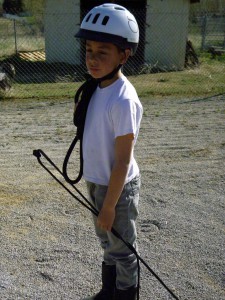This week’s tip comes from the book “100 Simple Secrets of Happy Families”
 Parents must impose standards of behavior on their children to keep them safe and to teach them their values. However, the standards should not be any more strict than necessary. Limiting children’s freedom in to harsh a manner teaches a lifelong lesson that they are under tight control, have few options,
Parents must impose standards of behavior on their children to keep them safe and to teach them their values. However, the standards should not be any more strict than necessary. Limiting children’s freedom in to harsh a manner teaches a lifelong lesson that they are under tight control, have few options, and cannot think for themselves. Children must be given enough space to make some mistakes and learn lessons from that so they will feel that the direction of their life is something they chose.
and cannot think for themselves. Children must be given enough space to make some mistakes and learn lessons from that so they will feel that the direction of their life is something they chose.
One of the first things we explain to our clients is that our very first job is to keep them safe “If you can’t listen and follow directions I can’t keep you safe. If I can’t keep you safe you can’t be up on a horse”.  However, we also provide lots of opportunities for clients to make decisions and learn for themselves.
However, we also provide lots of opportunities for clients to make decisions and learn for themselves.
One of my favorite examples of this was a young boy who wanted to know when he could start working on the canter. He had been coming a couple of months and we were just working on the trot. I told him that before he could work on the canter he had to be able to trot on his own. He assured me “Oh I can do that”.  Sooooo, I asked him to show me. He did a very short unbalanced trot “See!” he exclaimed. I encouraged him “well go ahead then”. His horse took off at a slow and reluctant trot. At the end of the arena the horse stopped and the client, now very unbalanced, slid off the horse and on to the ground. HE WAS NOT HURT, but in allowing him to try something he was sure he could do, though I had expressed my doubts, he learned very clearly (and still quotes to this day) “When adults tell you something you should listen because they are probably trying to keep you safe.” This is a pretty extreme example and not something we commonly practice, but for this it young man it was a very valuable lesson.
Sooooo, I asked him to show me. He did a very short unbalanced trot “See!” he exclaimed. I encouraged him “well go ahead then”. His horse took off at a slow and reluctant trot. At the end of the arena the horse stopped and the client, now very unbalanced, slid off the horse and on to the ground. HE WAS NOT HURT, but in allowing him to try something he was sure he could do, though I had expressed my doubts, he learned very clearly (and still quotes to this day) “When adults tell you something you should listen because they are probably trying to keep you safe.” This is a pretty extreme example and not something we commonly practice, but for this it young man it was a very valuable lesson.  But it goes to show that sometimes you really do have to make room for kids to try things. ‘Failure’ is a very important lesson. You can ‘fail’ and survive and go on to try another time or another way.
But it goes to show that sometimes you really do have to make room for kids to try things. ‘Failure’ is a very important lesson. You can ‘fail’ and survive and go on to try another time or another way.
Long-term studies that examine the lies of children as they age over three decades find that those who are brought up in more restrictive families are 28 percent more likely to feel that their choices as adults are limited. Kasser, Koestner, and Lekes 2002
